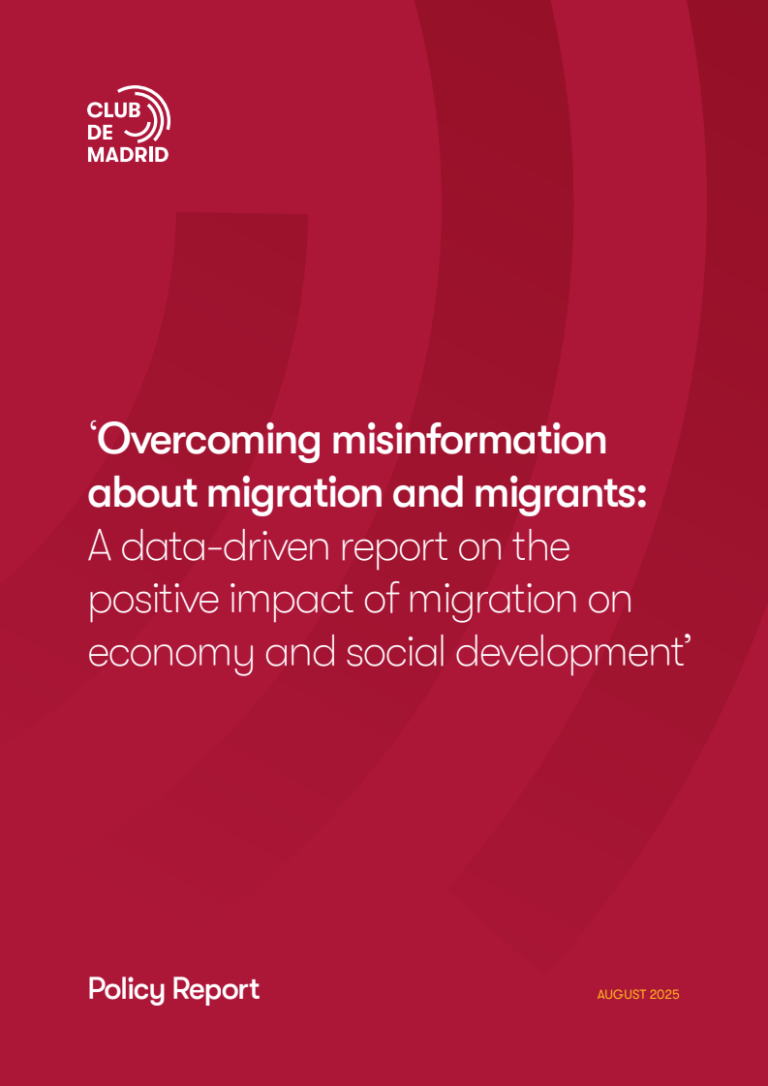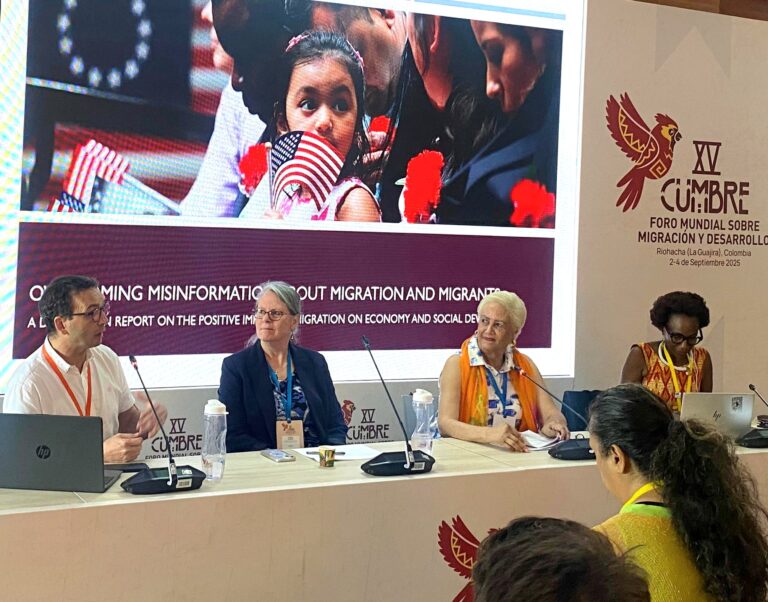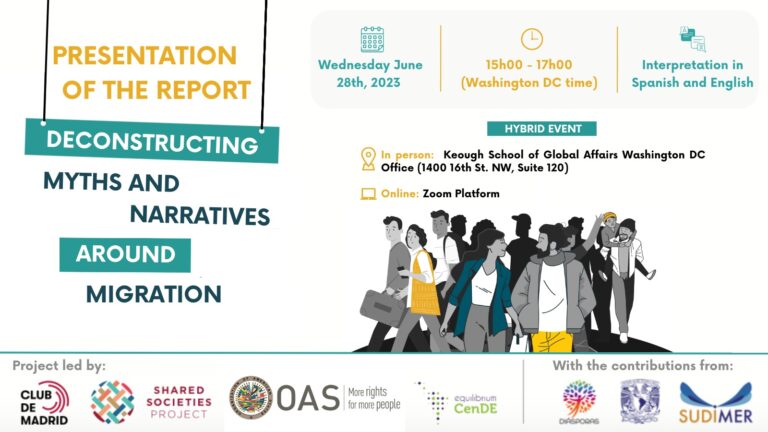Political leaders must be the sounding board of a comprehensive political discourse on migration. It is therefore crucial to equip them with tools and resources to understand the importance and impact of their narrative in shaping public perceptions on migration.
_______________________________________________________________________________________________________________
Club de Madrid advocates for an inclusive approach to migration policy in the framework of the Global Compact on Safe, Orderly and Regular Migration (2018). The organisation continues to focus on regional, cross-regional and country-level initiatives to promote migration policies and discourses that are more compatible with the principles of Shared Societies.
As migration flows continue to grow around the world, it is crucial to encourage host country leadership in their efforts to foster inclusive initiatives and cohesive, shared societies. At the same time, it is important to invite global reflections to address the drivers of migrations.
The challenge of international migration cuts across numerous areas of public policy. It affects national and international dynamics related to economic prosperity and human development. Political leaders must be the sounding board of a comprehensive political discourse on migration. It is therefore crucial to equip them with tools and resources to understand the importance and impact of their narrative in shaping public perceptions on migration. We promote a political discourse that fosters social inclusion and prevents xenophobia towards migrants.
Climate change, conflict, insecurity and poverty are some major global issues that drive the complex phenomenon of voluntary and forced migration. Addressing these challenges requires titanic global solutions. While the Global Compact on Safe, Orderly and Regular Migration (2018) includes a commitment of all parties to “create conducive political, economic, social and environmental conditions for people to lead peaceful, productive and sustainable lives in their own country”, migration policies seldom refer to the joint responsibility of all countries to work together to tackle the drivers of migration.
Club de Madrid wishes to create spaces for countries to discuss ways to work together towards tackling the drivers of migration while at the same time promoting a peaceful integration of migrants into host societies
Actions
Publications

Overcoming Misinformation about Migration and Migrants: A Data-Driven Report on the Positive Impact of Migration on Economy and Social Development
Club de Madrid and the Leir Institute highlights migration’s role in addressing demographic decline, boosting innovation, and fostering social cohesion. It calls for safe pathways for migrants and reframes migration as a driver of shared prosperity and inclusive democracies.
View PDF
Rightwing populist parties (RWPP) are driving democratic backsliding across
wealthy democracies by exploiting antiimmigrant sentiment, yet evidence shows
that copying their exclusionary rhetoric fails electorally and further erodes liberal
norms. This brief argues that the true antidote lies in robust immigrant inclusion.
Countries with comprehensive, coherent integration policies—measured by
indices like MIPEX—consistently report lower xenophobia and weaker farright
votes. On balance, studies find that inclusion fosters everyday contact, shrinks
perceived threat, and sets off a virtuous cycle in which tolerant attitudes
reinforce prodemocratic governance. Mainstream parties should therefore pair
humane border management with a suite of integration policies that expand the
parameters of belonging and address broader qualityoflife concerns, thereby
undercutting RWPP mobilization and fortifying democracy for all.
View PDF
This brief explores the global use of complementary or safe pathways to resettle
migrant populations, including those potentially eligible for refugee protections,
and makes recommendations for best practices according to existing data and
various example programs. It does so while accounting for mixed migration
across all categories. These are grouped into (1) humanitarian protections that
are available en route or on a shorter time horizon, and (2) non-humanitarian
pathways which include three of the four umbrella areas of safe
pathways—education, labor, and family reunification—as well as regularization
and general recommendations.
View PDF
This brief explores how migration impacts macroeconomic growth, innovation,
and tax revenue. It also surveys migrant entrepreneurship trends and the
impact of remittances on origin countries. The brief argues that immigration can
be an advantage for recipient countries. However, this depends on (1) how
countries navigate short-term political pressures in favor of long-term economic
benefits; (2) insulating migration policies from electorally driven discourse; and
(3) communicating the benefits of migration through a pragmatic, data-driven
approach.
View PDF
Within the next ten years, deaths will surpass births across the OECD, ushering
in a century of shrinking populations and rising oldage dependency ratios;
without sizable immigration, labor shortages, slower growth and mounting
pension costs are inevitable. Yet the scale of immigration required to maintain
today’s growth and pension promises is politically unlikely and risks “brain drain”
from sending countries. Immigration therefore cannot singlehandedly solve
demographic decline, but it can meaningfully ease fiscal pressure when paired
with productivity gains, healthier ageing, and inclusive labormarket policies that
raise participation across all age groups. Policymakers must weigh these
tradeoffs now, designing immigration and complementary economic strategies
that balance domestic needs with global equity as the world navigates an
unprecedented era of demographic divergence.
View PDF





